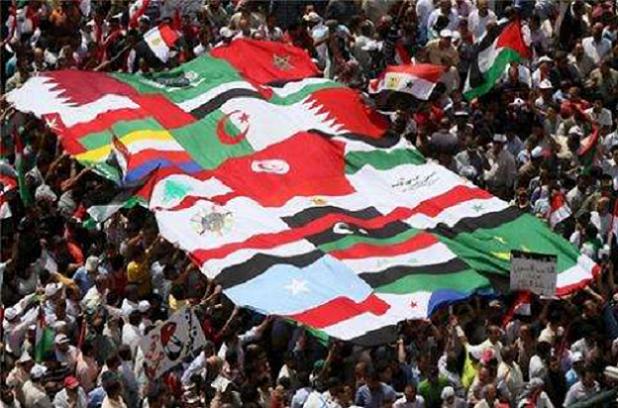
The political turmoil engulfing many Muslim-majority countries has left many people wondering, what does the ideal Muslim leader look like? Tyrants like Saddam Hussein and Muammar al-Gadhafi have demonstrated the depths of human cruelty, while elected leaders like Mohamed Morsi struggle to maintain their legitimacy in the wake of increasing democratization. While classical Islamic political theory focuses on the Prophet Muhammad (PBUH) and his successors (usually caliphs or imams, depending on Islamic sect) as political exemplars, I believe that the story of Dhul-Qarnayn in The Holy Quran also provides insight into the characteristics of an ideal leader.
Dhul-Qarnayn, translated as "the possessor of the two horns," is a legendary king mentioned in Chapter 18 of The Quran, Sura al-Kahf ("The Cave"). The Quran narrates the story of how Allah establishes Dhul-Qarnayn as a powerful ruler on earth and allows the king the freedom to do with his subjects as he pleases. Immediately, Dhul-Qarnayn creates a straightforward legal code wherein the righteous will be rewarded and praised, while the evil will be punished. However, he also acknowledges that punishments on earth can be imperfect, and that Allah is ultimately the final judge of mankind. In this way, Dhul-Qarnayn demonstrates humility, an essential quality of an ideal leader. He recognizes that his power and authority come from God, and that his kingdom on earth is an ultimately flawed attempt to replicate the justice of the Kingdom of Heaven. If only real-world leaders could follow this example. Even though the concept of God's judgment is not universally applicable in the modern world, politicians should acknowledge that virtually every political system is flawed in some way. An ideal modern ruler would understand that his/her political power -- regardless of its origin -- ultimately carries with it a responsibility to establish justice and improve the existing system.
Dhul-Qarnayn exemplifies other good leadership qualities in his dealings with a nation being terrorized by the monsters Gog and Magog (N.B.: these monsters are also referenced in the biblical books of Ezekiel and Revelation). First, when the people offer Dhul-Qarnayn tribute in exchange for helping them, he responds that God's rewards are better than earthly ones. He exhibits self-restraint and does not succumb to greed. Since God has already blessed him with a powerful kingdom, Dhul-Qarnayn considers the tribute unnecessary and decides to help this nation solely due to his sense of justice. However, Dhul-Qarnayn motivates the people to help themselves rather than allowing them to accept a handout. While he supplies the technical expertise necessary to forge a barrier preventing the entry of Gog and Magog, he instructs the people to bring their own raw materials and aid in the construction. In this way, Dhul-Qarnayn models the importance of collective action in tackling nationwide problems. In the modern world, it is clear that governments are not the solution to all societal ills; instead, people from all walks of life must work together to resolve these issues. Politicians may be necessary to supply the required leadership or expertise, but in many cases, the will of a nation's people will dictate an initiative's success or failure.
Dhul-Qarnayn's story ends rather abruptly after the above example, but Quranic exegesis and analysis reveal other important features of his leadership. Since Dhul-Qarnayn is alleged to be a historical figure, scholars over the centuries have continuously debated his identity. Interestingly, a large number of scholars agree that he was a pre-Islamic figure not associated with Jews or Christians, the traditional "Peoples of the Book." In fact, most schools of thought consider him to be either Alexander the Great, a pagan, or Cyrus the Great, a Zoroastrian. In any case, this means that Dhul-Qarnayn's principles of good governance are widely applicable to diverse societies, not only Abrahamic ones. This also references a message of religious pluralism; even though Dhul-Qarnayn may not have been one of the "People of the Book," he still exhibited traits like justice and humility that are central to Islam.
Was Dhul-Qarnayn actually Alexander, Cyrus or a completely different person? We may never know. But since his true identity is a mystery, we can analyze his actions without historical bias. The Prophet Muhammad (PBUH) himself must have believed that Dhul-Qarnayn's story was worthy of frequent reading and reflection, since he strongly recommended that believers read Sura al-Kahf every Friday. Indeed, Muslims can be inspired by Dhul-Qarnayn's respect for God's justice and his pious commitment to God's commands. Even non-Muslims (and the non-religious) can learn from this legendary king by striving to emulate his personal qualities of humility, self-restraint and his commitment to justice.
As the "Arab Spring" and its aftermath continue to upset the historical order in many countries, future Muslim leaders would do well to follow the example of Dhul-Qarnayn. Acknowledging the limits of their own political systems and promoting collective action are central to good governance in this increasingly pluralistic age. While it is impossible for anyone to be a perfect leader, Muslims everywhere can benefit from a sincere commitment to Dhul-Qarnayn's governing ideals. After all, The Quran declares, "Let there arise out of [mankind] a band of people inviting to all that is good, enjoining what is right, and forbidding what is wrong: They are the ones [who] attain success" (3:104).
?
Follow Aamir Hussain on Twitter: www.twitter.com/AamirNHussain
"; var coords = [-5, -72]; // display fb-bubble FloatingPrompt.embed(this, html, undefined, 'top', {fp_intersects:1, timeout_remove:2000,ignore_arrow: true, width:236, add_xy:coords, class_name: 'clear-overlay'}); });
Source: http://www.huffingtonpost.com/aamir-hussain/dhul-qarnayn-an-ideal-muslim-leader_b_3299625.html
girl with the dragon tattoo ohio state basketball collateral dick cheney heart umf elite eight stephon marbury
No comments:
Post a Comment
Note: Only a member of this blog may post a comment.